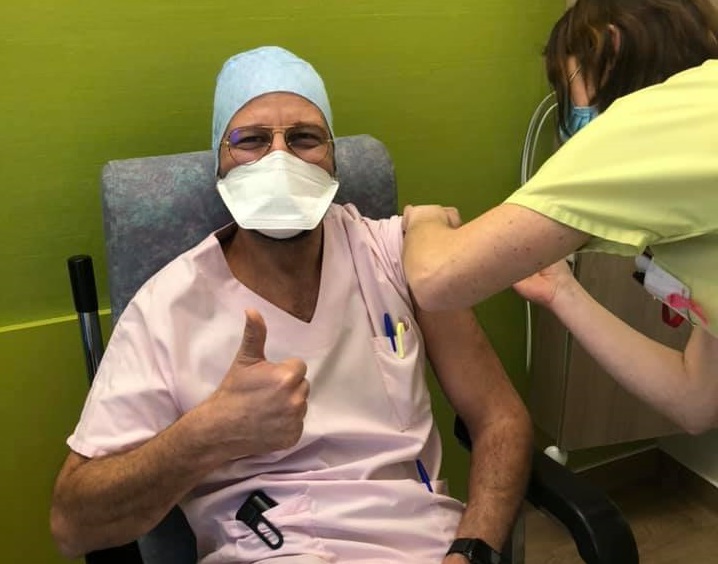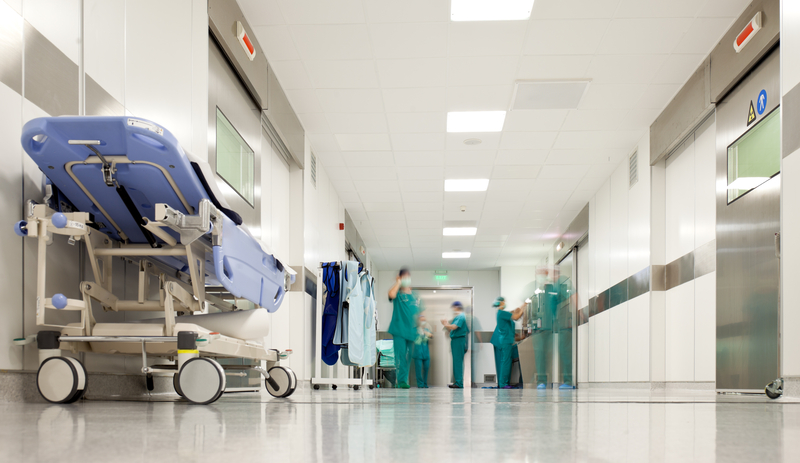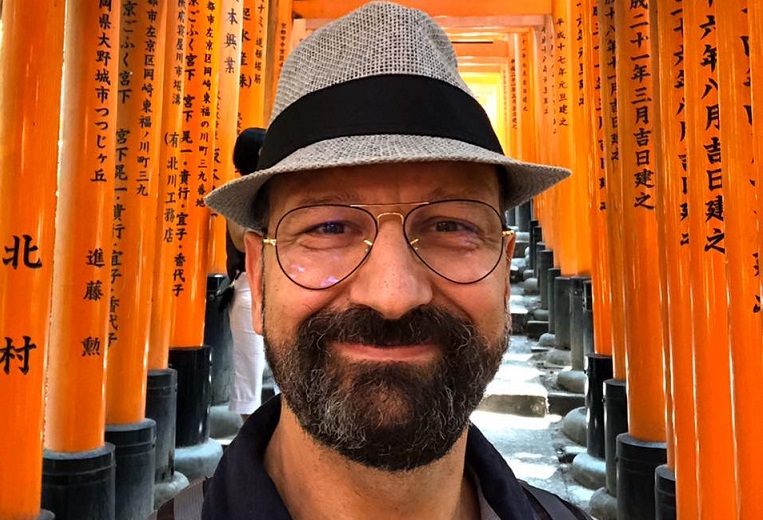
Medical errors not only exist in other countries, but are “quite common,” says Radu Lupescu, a Romanian intensive care physician at the Rhena clinic in Strasbourg who has been honored by the French president for his efforts during the pandemic. However, it is important to have a culture of recognizing and analyzing medical errors so they don’t happen again, says the Romanian doctor.
How does the medical system in France deal with patient complaints of negligence and how did it manage to prevent 3 quarters of them from going to court and settling for a settlement? Doctor Radu Lupescu explains step by step how negligence complaints work in France – a system that has been very well established for 20 years.
Less than 2,000 patient complaints per year. They can get compensation even if it is not proven that it was a medical error, but the patient suffers from a “drug effect”
In France, 73% of complaints in which patients or their families allege possible medical errors do not end in court, but end peacefully, doctor Radu Lupescu explained during a debate on medical errors and how the Romanian medical system reports them, event, organized by the Romanian College of Doctors.
Even 20 years ago, the Commission for Reconciliation and Compensation of Damages was introduced into the law, which exists at the hospital level and includes representatives of patients (patient associations). There are also regional commissions.
Most complaints from patients reach the level of these commissions, and they are resolved amicably – there is a state fund from which patients are compensated or can be compensated for their health insurance.
Interestingly, patients in France receive compensation when it was a medical error, but also in cases where it is not proven that it was an error, but if the patient has the consequences of a medical action, “he can receive compensation”, according to doctor Radu Lupescu.
There are more than 200,000 doctors in France (more precisely, 226,000), – says Radu Lupescu.
In 2020, the first year of the pandemic, when many clinics and hospitals were closed for a period, there was a very low rate of accident reports. In 2021, there were almost 2,000 medically reported accidents, or 1,900 to be exact.
For 200,000 doctors, there are less than 2,000 complaints a year — that’s quite a lot — because France has a system designed to prevent, and not necessarily end, legal proceedings in the event of a medical error, explains Radu Lupescu.
“It is very important to have this culture of analyzing the mistakes we make, managing risks and improving patient safety. In France, these things are very clearly defined, it is mandatory to have people responsible for risk management in the hospital, etc., says the Romanian doctor, awarded by the President of France.

In France, we are not looking for someone who is guilty or responsible, but the reasons that led to the occurrence of an undesirable event.
In France, when analyzing an adverse medical event, one looks not for who is guilty or responsible, but rather for the reasons that led to the occurrence of the adverse event, what barriers worked and what did not work, what deviations from procedures, what are the factors that contributed to the accident , emphasizes Rada Lupescu.
These factors can be human – related to stress, lack of communication, making the wrong decision, it can be an organizational factor – the organization of the department, if the equipment is missing or the equipment is broken and there was no clear repair procedure. or replacement of the relevant equipment. The working space is also analyzed – inappropriate space, poor hygiene and so on.
After this review, conclusions and an immediate action plan are published.
“It is also important that the people who were involved in the accident or related event do this analysis, because they are freed from the accumulated tension and do not go to extremes, such as medical personnel who were considered guilty, etc. on,” explains Radu Lupescu.
At the Strasbourg clinic where Radu Lupescu works, for example, “every time we have an unexpected death, it is discussed whether it is a natural development of the disease, whether it is a factor related to the patient, or whether it was an error that went unnoticed.” .
The Romanian doctor emphasizes that “we are not looking for a responsible person, but a chronological presentation is made: what happened stage by stage, who intervened at each stage, what actions were taken to understand for each operation what worked and what did not work at that stage , and we conduct the whole business.”
“Once we’ve made that chart, we look to see if there’s an obvious cause or if there are deeper, hidden causes. It can also be about factors related to the patient – the patient had co-morbidities that worsened the situation, treatment that was not stopped or worsened the situation, a conflicted relationship with the medical team, the patient’s ability to understand what was happening, led to a medical error – he took the medicine incorrectly, he took the medicine 3 times because he did not understand what he should take and so on. “
In addition, there are factors related to the tasks to be performed – are there clear protocols that are followed, or are there no protocols? Was the task of each team member clearly defined? Are there decision-making algorithms? Planning the act wrong?
This may be a factor related to medical and support staff – qualifications, competence, maybe they brought in a resident who does not have the necessary knowledge, or a new nurse who has not been trained in the field in which they work. Or maybe it’s just team overload.
Other factors may be related to the team – is there effective communication within the team between doctors, between doctors and the rest of the staff? Is the information recorded in the patient file? Were alerts written, for example, was an allergy detected, was this allergy noted?
This may be a factor related to the work environment – too much bureaucracy, inadequate facilities, lack of medicine, equipment, etc.
Factor related to organization and management – procurement policy, which consists of management, quality, safety, hygiene.
And finally, the institutional context – what is public health policy if there is no culture of reporting events and a lack of lessons from these events. Even if a sound health care policy is in place, members of the medical team may not embrace this culture, who may view it as ineffective or unnecessary.
Conclusions are made, an action plan is drawn up and the implementation of this action plan is checked.

For any adverse medical event, a form is completed and sent to hospital management within a maximum of 48 hours
Radu Lupescu says that in French hospitals, for any adverse event, a report sheet is filled out, which can be filled out by anyone – a doctor, a nurse, a nurse, even a cleaner, when they see that something is not right – and the letter is sent to the hospital management within 48 hours .
“The doctor is very important, but we are all in the team. The doctor does his impeccable work in vain if the operating room has not been properly cleaned, if the instruments have not been properly sterilized.”
“There are reports that are made to the management to see where the mistakes come from and correct them. The hidden error is repeated. Even if this time the accident was avoided, the next time it could lead to tragedy or death,” explains the doctor.
3 quarters of negligence complaints in France do not go to court, but are resolved amicably.
If we look at the almost 2,000 complaints filed in 2021 by patients, we will see that most of these complaints do not reach the Court in France, because there are structures that allow these errors to be discussed before they reach the court, says Radu Lupescu
The first step when a patient or family makes a complaint is a friendly discussion at the clinic or doctor level. The Commission for Reconciliation and Compensation, which has been in place since 2002.
“When there is a patient complaint in the hospital or even on social media, because we have a quality manager who checks the website and the Facebook page, and when they find that a patient has complained, the patient is contacted by phone. a member of management, an internal investigation is conducted and an answer is provided.”

In most cases, peace comes – the patient understands what happened, whether it was a mistake or not. But sometimes the patient is not satisfied, “and then we have a mandatory commission made up of patient representatives, who are usually members of patient associations.”
“This commission is notified by a patient who writes what happened to him, of course, he is asked for his consent to read his medical card and is invited to speak with a medical and non-medical intermediary – the non-medical intermediary is one of the patients’ representatives. We should not be afraid of patients and their representatives, and it is very important that they are integrated at a structural level in the various committees. These patient representatives are also part of the regional compensation commissions, and they also tell us about other cases that are heard by these commissions. Our strategy is to integrate them as much as possible into the decision-making process,” explains Radu Lupescu.
These commissions were established in 2002 when the National Accident Compensation Office was also established.
According to Radu Lupescu, this fund allows patients in France to receive compensation if there was a medical error, and when it is not proven that it was an error, but if the patient suffers from the consequences of a medical action, he can receive compensation. .
The regional commission is formed by a magistrate who is the president, 3 patient representatives and 2 doctors – one from public hospital doctors and one from the private environment – 3 hospital representatives, one from insurance, one representative from the National Compensation Fund and two individuals – usually professors of medicine or law , who are good at inflicting bodily harm.
“These are regional structures, the patient’s access is free, and they first analyze the admissibility of the complaint and check whether a medical error can be detected based on the complaint, or whether the patient can be compensated. Usually they give an answer within two months, and in very complex cases within a year at the most,” explains Radu Lupescu.
Compensation is calculated on the basis of tables of damages, a kind of grid on the basis of which the patient receives compensation – factors such as the fact that the patient has been incapacitated for a certain period of time, etc. are also taken into account.
“70% of complaints received last year were compensated by insurance or the National Fund. If the patient is not satisfied, he can complain further – to the police, to the court or to the Order of Doctors (that’s what the College of Doctors is called in France),” says Radu Lupescu.
“Everything is done in such a way that we have such a culture of declaring all our mistakes. During the medical procedure, we find out what mistakes there are in order to be able to correct them,” concludes the Romanian doctor.
Photo: personal archive of Radu Lupescu, Dreamstime.com.
Read also:
- When testing is free and relatives of patients with COVID-19 are called by doctors every day / INTERVIEW with Radu Lupescu, a Romanian frontline doctor awarded by the President of France
- Romanian doctor from France: The number of patients hospitalized in ATI is very small, children go to school, restaurants are open. Vaccination rate – 75%
Source: Hot News RO
Robert is an experienced journalist who has been covering the automobile industry for over a decade. He has a deep understanding of the latest technologies and trends in the industry and is known for his thorough and in-depth reporting.